You're considering purchasing a private jet, like the Gulfstream G650ER, which can cost upwards of $70 million. But that's just the beginning. Owning a private jet comes with a multitude of ongoing expenses that can quickly add up. From fuel costs to maintenance and repairs, insurance premiums to pilot salaries, the costs can be staggering. For example, fuel costs alone can range from $2,000 to $7,000 per hour. But what are the other expenses you'll need to factor in, and how can you guarantee you're budgeting enough to keep your jet in the air, and how can you certify you're prepared for any unexpected costs that may arise?
Key Takeaways
- The purchase price of a private jet depends on factors like aircraft type, size, materials, manufacturer, and vintage.
- Ongoing operating expenses include fuel costs, maintenance, insurance, pilot salaries, and hangar fees.
- Aircraft type and size significantly impact fuel costs, with smaller jets burning less fuel and costing around $2,000 to $3,000 per hour.
- Annual maintenance and repair expenses can range from 5% to 15% of the aircraft's purchase price, with routine inspections costing $5,000 to $10,000.
- Crew salaries and training expenses can add up to $200,000 per year for experienced pilots, plus additional costs for flight attendants and maintenance personnel.
Initial Purchase Price Factors
Considering the hefty price tag of a private jet, you're likely wondering what factors contribute to the initial purchase price.
The type of aircraft is a vital factor, with larger, more complex planes costing more. The number of seats, range, and speed also impact the price.
Moreover, the materials used in construction, such as carbon fiber or aluminum, can drive up costs. You'll also need to weigh the avionics and electronics, including navigation and communication systems.
Moreover, the manufacturer's reputation, production volume, and certification requirements can influence the price. The vintage of the aircraft, whether it's new or pre-owned, is another vital factor.
Each of these elements contributes to the total cost, making it vital to carefully evaluate your needs and budget before making a purchase.
Ongoing Operating Expenses
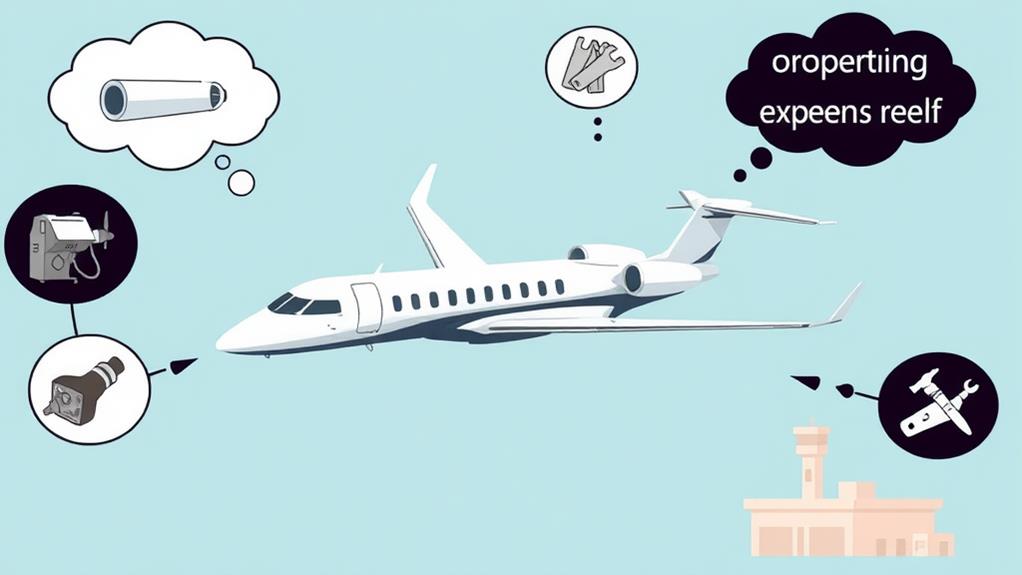
Beyond the initial purchase price, owning a private jet comes with a slew of ongoing operating expenses that can quickly add up.
As you weigh the costs of private jet ownership, paramount importance lies in factoring in these recurring expenses to guarantee you're prepared for the financial commitment.
- Fuel costs: with prices fluctuating constantly, pivotal to budget for the fuel your jet will consume
- Maintenance and repairs: regular upkeep is indispensable to guarantee your jet remains airworthy and safe
- Insurance premiums: protecting your investment with exhaustive insurance coverage
- Pilot salaries and training: employing experienced pilots and investing in ongoing training
- Hangar and storage fees: securing a safe and secure location for your jet when it's not in use
Aircraft Type and Size Costs
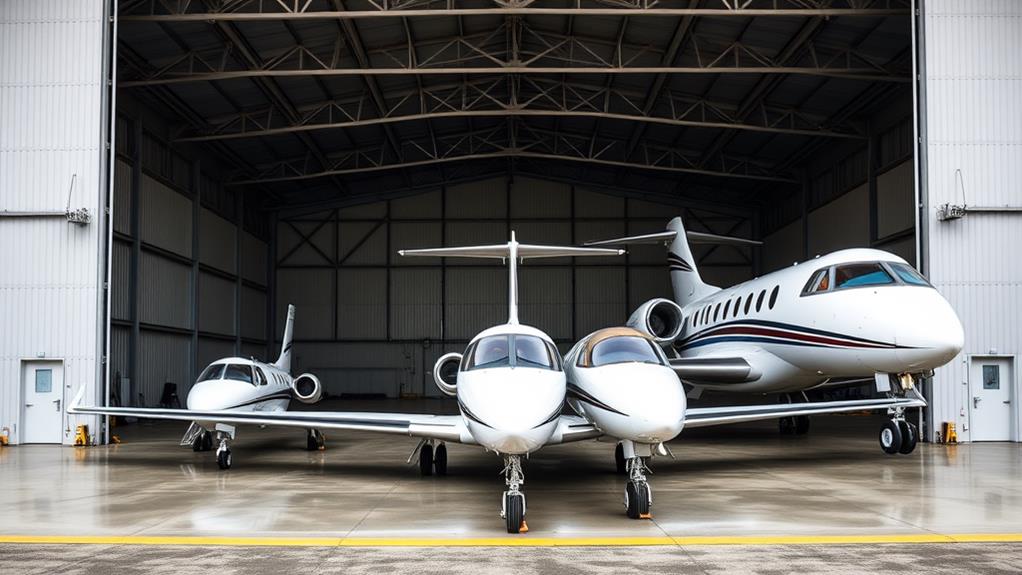
The type and size of your private jet substantially affect its operating costs.
A smaller jet, like a Phenom 100, burns less fuel, resulting in lower fuel costs, around $2,000 to $3,000 per hour.
In contrast, a larger jet, such as a Gulfstream G650, requires more fuel, increasing costs to around $5,000 to $7,000 per hour.
Furthermore, larger jets often require more extensive insurance coverage, contributing to their total expense.
Your jet's size also impacts landing fees, handling fees, and hangar costs, as larger jets require more space and handling.
When choosing a private jet, consider your needs and balance them with the costs of ownership.
Maintenance and Repair Costs
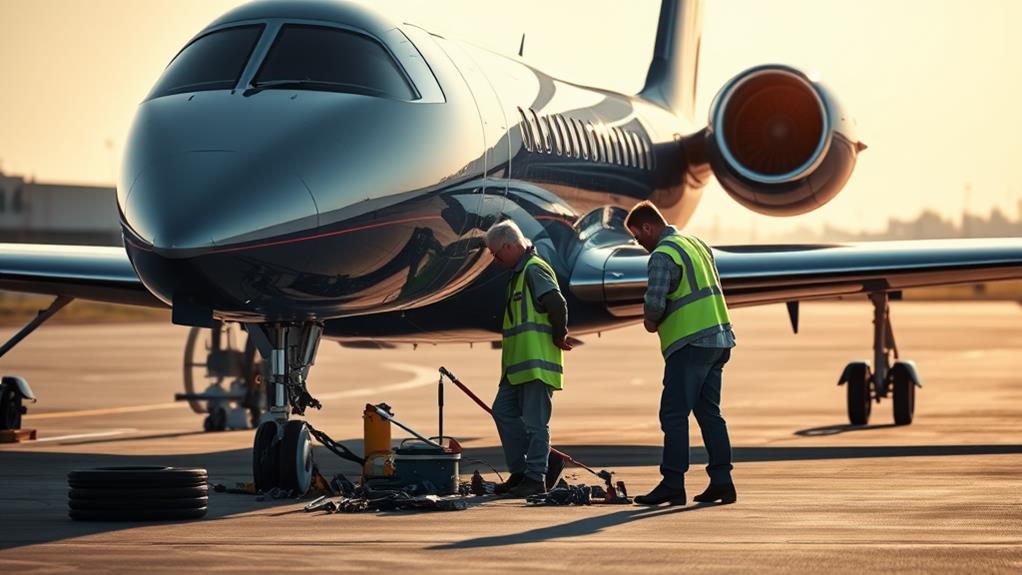
Your private jet's maintenance and repair costs can add up quickly, with annual expenses ranging from 5% to 15% of the aircraft's purchase price.
These costs can include regular maintenance, repairs, and overhauls, all of which are vital for ensuring your safety while flying.
- Routine inspections and maintenance checks ($5,000 to $10,000)
- Engine overhauls every 1,000 to 2,000 hours ($100,000 to $200,000)
- Avionics upgrades to keep your jet's technology current ($50,000 to $100,000)
- Replacement of tires and brakes every 100 to 200 landings ($5,000 to $10,000)
- Paint and interior refurbishment every 5 to 10 years ($50,000 to $100,000)
Crew Salaries and Training
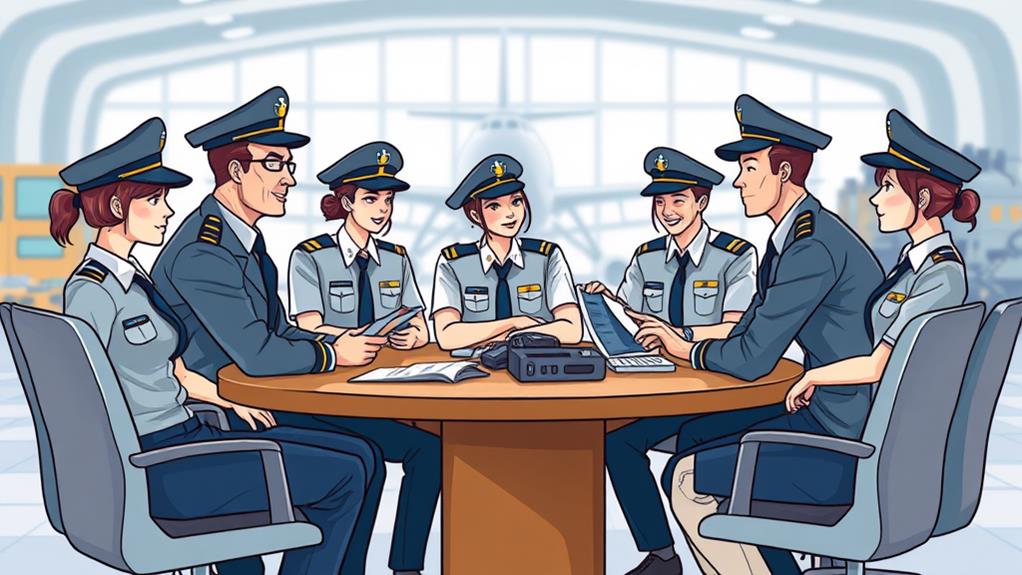
As you consider the total cost of owning a private jet, pivotally, you must factor in the salaries and training expenses for your crew.
Your pilots, flight attendants, and maintenance personnel are the backbone of your operation, ensuring the safety and comfort of your passengers.
Salaries for experienced pilots can range from $50,000 to over $200,000 per year, depending on their qualifications and flight hours.
Moreover, you'll need to budget for recurrent training, which can cost upwards of $10,000 per pilot per year.
This training is imperative to maintain their licenses and stay up-to-date with the latest aviation regulations and technologies.
In the same vein, having a well-stocked medical cabinet on board is paramount, with necessities like antibiotics and painkillers, as medical emergencies can arise at any time.
Additional Ownership Expenses
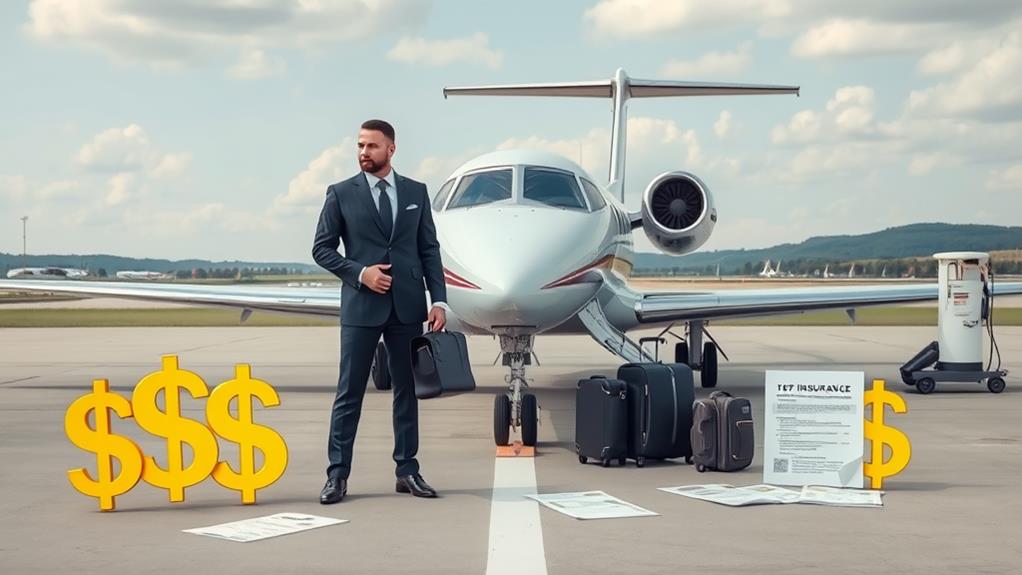
You're about to take on a slew of expenses beyond crew salaries and training.
As a private jet owner, you'll need to ponder the costs of maintaining and operating your aircraft. This includes regular maintenance checks, repairs, and replacement of parts.
To guarantee safety, you'll also need to invest in avionics upgrades and other equipment.
Some supplementary expenses to ponder:
- *Insurance premiums*: safeguarding your investment against damage or loss
- *Hangar and storage fees*: keeping your jet secure and protected from the elements
- *Fuel and oil costs*: powering your flights and keeping your engines running smoothly
- *Airworthiness directives*: complying with regulatory requirements to guarantee safety
- *Interior and exterior refurbishments*: maintaining the comfort and aesthetic of your jet
Frequently Asked Questions
What Are the Benefits of Buying a Pre-Owned Private Jet?
You'll enjoy significant benefits buying a pre-owned private jet, including lower purchase prices, reduced depreciation, and a wider selection of models. You'll also have access to a proven aircraft with a known maintenance history.
How Do I Choose the Right Private Jet for My Needs?
You're choosing a private jet, consider your mission requirements, budget, and travel habits. Assess your needs for range, speed, and passenger capacity. Research different models, and consult with experts to find the best fit.
What Is the Average Cost of Fuel per Hour?
You're probably wondering, as you fill up your car's gas tank, how much it costs to fuel a private jet. Coincidentally, the average fuel cost per hour is around $500-$1,000, depending on the jet's size and efficiency.
Can I Customize the Interior of My Private Jet?
You're considering customizing the interior of your aircraft, a great way to personalize your flying experience. You'll work with designers to select materials, colors, and layouts that suit your needs and guarantee safety regulations are met.
Do Private Jets Require Special Licenses to Operate?
When you're considering operating a private jet, you'll need a commercial pilot's license and a type rating for the specific aircraft you'll be flying, ensuring you have the necessary skills and knowledge to operate safely and efficiently.
Conclusion
As you take to the skies in your own private jet, the thrill of freedom and luxury is unmistakable. But beneath the sleek exterior and plush interior lies a complex web of costs that demand careful consideration. With prices soaring higher than the aircraft itself, it's vital to weigh the expenses – from initial purchase to ongoing maintenance, crew salaries, and more – to guarantee that your private jet is a dream come true, not a financial nightmare.